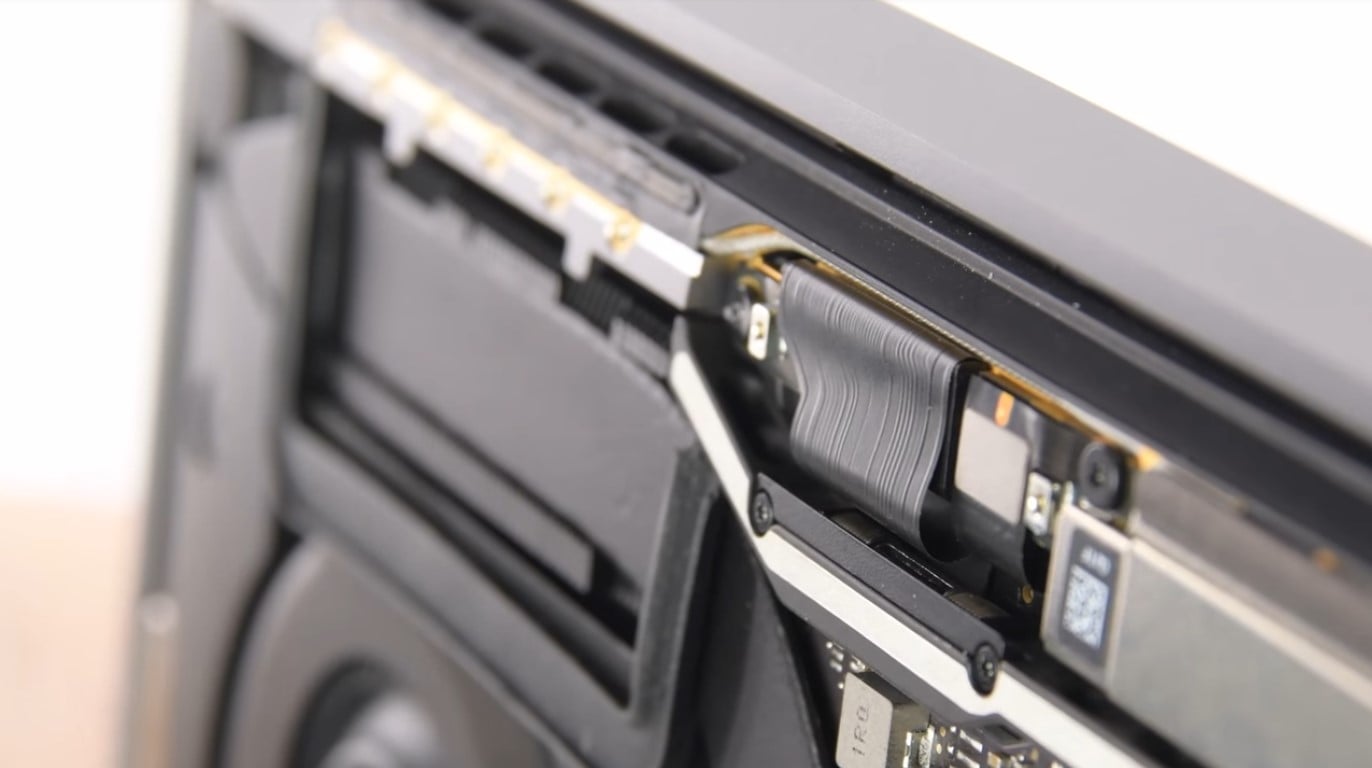MacBook Pro users have been reporting an issue which causes the display to fail after just a few years of use. Although Apple never publicly acknowledged the issue popularly known as Flexgate, it seems the company has made sure it will not appear in the 2018 MacBook Pros.
What is the Flexgate issue?
Users of affected MacBook Pros report uneven lighting which causes a “stage light” effect. The issue gradually worsens over time until the display stops functioning completely. The issue is affecting some 2016 and 2017 models. Before we explain how Apple fixed the issue, it is important to understand what was causing it.
In the MacBook Pros released in 2016 and 2017, the display flex cable warps around the hinge of the laptop. Thus, with normal usage of the laptop, which includes opening and closing the lid, the cable is damaged leading to the stage light issue.
“After a year or two of opening and closing the laptop, the cable will wear down, causing the display to start failing with a distinctive stage-light effect,” iFixit said in a blog post.
The only way to fix the Flexgate issue is to replace the entire logic board, which costs about $600. Despite this, Apple never publicly acknowledged the issue, possibly because it believes the number of affected devices is not high enough to launch an official repair program. However, the issue seemingly caused Apple to tweak the design of its 2018 MacBook Pros to ensure that the Flexgate issue doesn’t continue.
How Apple fixed the issue in the 2018 MacBook Pros
iFixit explained in a blog post that Apple has made the display flex cable longer in the 2018 MacBook Pros. According to iFixit, the display flex cable is 2 millimeters longer in the 2018 models. Although that number is small in absolute terms, for compact machines like the MacBook, it can make a big difference.
“This is significant because it gives the backlight cable more room to wrap around the board and not come into contact with the board as the laptop is opened past 90 degrees,” iFixit teardown engineer Taylor Dixon explained.
However, iFixit is not sure if increasing the length of the cable by 2 millimeters will fix the Flexgate issue permanently or if it will just extend the amount of time before the cable starts to show normal wear and tear. Apple has changed the cable in both the 13- and 15-inch MacBook models. So far we haven’t heard of any such issue from the last year’s model, but it could be due to the fact that those models are not old enough to show signs of wear and tear.
The redesigned MacBook Pro released in 2016 was the first to use the flex cable. Older MacBooks are not affected by the Flexgate issue because they used a different cable which routed through the hinge. One possible reason Apple didn’t make a big deal about the design change with the 2018 models is that if it had, it would have indirectly acknowledged the Flexgate issue.
It will be interesting to see what design Apple adopts in the 2019 models. The company is expected to release a 16-inch MacBook Pro this year, which would be the biggest MacBook Pro since the launch of the 17-inch model in late 2011, which was discontinued in June 2012. Currently the biggest MacBook Pro is the 15-inch model.
Another issue fixed
One other issue with the MacBook Pros has been fixed in recent weeks. Many users reported last month that Adobe Premiere CC was blowing out the speakers of their MacBook Pros. One affected user described the problem as a loud “screatching [sic] noise” which forced them to turn it off. After the noise stopped, “the speakers were really quiet, and after the next restart they’re clearly blown.”
Adobe issued a fix for the issue a couple of weeks ago. The patch fixes the “issues with Premiere Pro that reduce noise interaction and help minimize possible impact,” the changelog states. However, Adobe gave no indication on if it will be compensating users with damaged MacBooks or if it has already paid them for the repairs.
In 2018, a Premiere Pro user sued Adobe for $5 million after his video library was deleted while he was trying to clear his cache.





